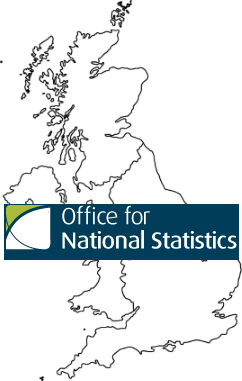Net migration estimated at +239,000 in year ending June 2021; study visas largest on record in year ending March 2022
The Office for National Statistics (ONS) last week published its latest migration statistical bulletin.
 It shows that net migration had recovered from the dip seen during the Covid-19 pandemic to reach an estimated +239,000 for the year ending June 2021.
It shows that net migration had recovered from the dip seen during the Covid-19 pandemic to reach an estimated +239,000 for the year ending June 2021.
The ONS is, however, using new experimental methods for its estimate, which depart from the previous International Passenger Survey (IPS) method and are not comparable to earlier estimates.
Almost all of the net migration in the year ending June 2021 was accounted for by non-EU nationals. EU net migration was estimated to be close to zero, while non-EU net migration was estimated at +251,000.
Jay Lindop, Director of the Centre for International Migration, at the ONS said: "The 12 months to June 2021 was a period when migration behaviour was impacted by the restrictions imposed to manage the coronavirus pandemic as well as ongoing changes in migration policy following Brexit. Bringing together the best sources of data we have available, our latest estimates of net migration suggest that around 239,000 more people came to the UK than left, driven by non-EU immigration."
The ONS notes that a large part of non-EU net migration has previously been due to foreign students, and current analysis of available sources on international students suggests a recent increase in those coming from abroad to study in the UK.
New immigration statistics from the Home Office for the year ending year ending March 2022 coincided with release of the ONS's statistics.
The Home Office statistics show that the number of study visas granted in the year ending March 2022 was the largest on record, with 466,611 issued (an increase of 170,368 over the year ending March 2020).
On work visas issued, the Home Office noted: "There were 277,069 work-related visas granted in the year ending March 2022 (including dependants). This was a 129% increase on the year ending March 2021 and is 50% higher than in the year ending March 2020."
Asylum claims in the year ending March 2022 increased to reach 55,146, which is the highest annual figure since 2003.
As noted by the Migration Observatory at the University of Oxford, the Home Office statistics also showed that the asylum backlog continues to increase, reaching almost 110,000 people at the end of March 2022.
The Refugee Council noted: "At the end of March 2022, 109,735 people were waiting for an outcome on their initial claim for asylum. Of these, 73,207 (67%) have been waiting for more than 6 months, up from 50,084 this time last year."
Enver Solomon, CEO of the Refugee Council, said in response to the figures: "It is desperately worrying to see just how sharply the backlog of people waiting for a decision on their asylum application has risen over the past few years. This leaves thousands of vulnerable men, women and children trapped in limbo, adults banned from working, living hand to mouth on less than £6 a day, and left not knowing what their future holds. This backlog is entirely the government's own making, as they have allowed it to steadily increase over a number of years and have then used it to frame the asylum system as 'broken'."
The Home Office noted that 75% of the 14,603 initial decisions made in the year ending March 2022 resulted in a grant asylum or humanitarian protection, the highest recognition rate since 1990. Of the top ten nationalities applying for asylum, half have a grant rate above 80%.
Dr Peter William Walsh, Senior Researcher at the Migration Observatory, said: "The government has recognised three quarters of asylum applications as valid over the last year. This is a significant shift compared to a few years ago, when the majority of asylum applications were initially refused (even if many of these were later overturned on appeal). We now see majorities of positive decisions across a range of groups, from young men to older women. This highlights that policies targeting asylum seekers will inevitably affect some people who would be granted refugee status if their claim was processed in the UK".